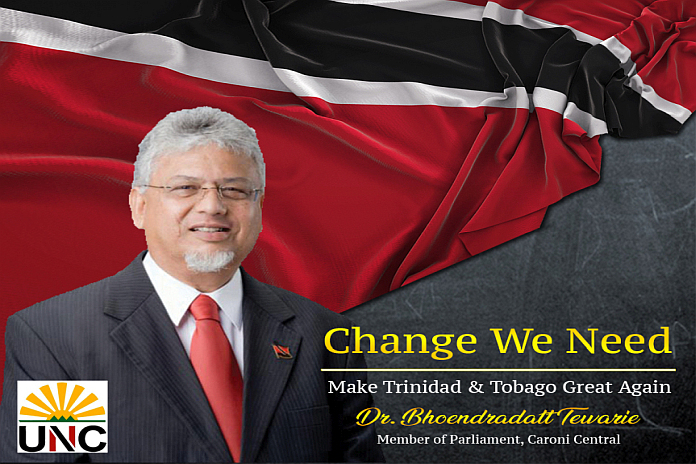Dear Sir
I have been looking at the statement of finance minister Colm Imbert, on the government’s financial and economic response to the COVID-19 crisis, delivered in the House of Representatives last Wednesday.
In a way, it is a mid-year review, but more tentative, anticipating further uncertainties and perhaps a little wary of unpredictable, additional elements of a worsening crisis. But is a review of the budget taking a crisis into account? However, he also takes the opportunity to make a distinction between what he, as minister of finance is trying to manage, and what the prime minister and his Road Map Committee will be managing.
The minister is focused “on current financial efforts … a comprehensive response and mobilisation of all available resources and expertise to survive (my emphasis) the health and economic crisis”.
The minister states further that his job is to respond to the crisis triggered by COVID-19, for example, “measures aimed at providing social protection, assisting the poor and the vulnerable, protecting businesses, jobs and incomes … we cannot allow this pandemic to destroy our economy”.
He continues: “We consider policy and delivery execution to be an essential requirement … to steer through … He makes it clear that his responsibility is not a plan for recovery”. That is the responsibility of the Road Map team. So Imbert is involved in crisis management for the survival of the economy until the end of the fiscal year. The prime minister’s Road Map Committee is responsible for a recovery plan to build back and enhance government, business, and society.
Imbert speaks about “when life gets back to normal”… “We are confident that the Road Map Committee will bring a degree of certainty to the shaping of our future.”
This distinction between managing a crisis and initiating an action plan for recovery is important because managing survival will not get us to normalcy, it will only allow us as a society to survive with wounds. And it is difficult to say what that survival platform will be; how even, how stable, how sustainable.
Any recovery plan must take into account where one is starting from; what is the starting point or platform, upon which one will initiate a plan for recovery, what would constitute that plan, where will one start, what is the sequence of actions or initiatives, and what might one do simultaneously? And how and why?
The survival plan has already been laid out by the minister of finance. The problems already emerging are timely delivery and reaching the targeted individuals, groups, and sectors. In other words, effective and efficient execution. Without effective execution, the best-laid survival plans will blow up in our faces.
Managing needs, expectations, hurt, and disappointment is difficult in the best of times. Imagine the effectiveness, precision, and sensitivity required now.
A badly executed emergency or survival plan will make it more difficult to initiate a recovery plan that will have the buy-in of the vast majority, no matter how good it sounds. Because, if your survival plan is not working or has not worked, how much faith can the citizen have in your road map to recovery?
So the success of the current survival plan and initiatives is critical. Inevitably, any recovery plan is caught between the extent of success of the survival plan and navigating a recovery plan under continuing COVID-19 fears and concerns about infection in the absence of a vaccine or cure. Because for as long as a vaccine is not found and our population is not vaccinated (and this goes for all other countries small and large) recovery will have to be managed together with prescribed COVID-19 protocols. That will be the new normal until a vaccine arrives.
The fundamental questions are, when and how will return to commerce be phased in? And how will such decisions affect business survival of the 26,000 plus businesses in the country and especially the 17,000 or so small and medium businesses including micro-enterprises? How many will be able to return to business and what does that mean for employment and income losses?
If we have a ten percent business closure that represents 260 businesses. If we have 15 percent job losses, given a working population pre-COVID-19 of 620,000, that works out to be 93,000 jobless. And what was the pre COVID- 19 economic reality?
Eighteen consecutive quarters of economic decline or four and a half years of economic depression; Imbert and Dr Rowley presided over economic decline and recession that turned into a five-year depression.
So when the finance minister says, “when life gets back to normal” he cannot, could not, possibly mean returning to that?
The survival challenge is pretty grim. Attempts at economic recovery while grappling with the risk of infection and the observance of COVID-19 protocols will be quite challenging. It is only when a vaccine is found that global recovery will begin to seem possible. To return to the Trinidad and Tobago normal pre-COVID-19 is to return to economic depression.
Providing that we get the survival strategy right, what is required from the Road Map Committee is not a return to normalcy, but a rude disruption of complacency and a mind shift aligned to a post-COVID-19 world, the parameters of which we cannot yet know.
Dr Bhoendradatt Tewarie, MP
Caroni Central, Trinidad and Tobago
Former Minister of Planning & Pro Vice-Chancellor at UWI






